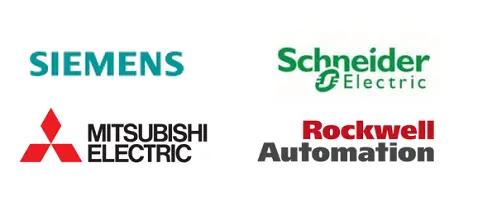Well Testing Services Market Overview
The report is titled as ‘Well Testing Services Market: Opportunity Analysis and Future Assessment 2022-2030’. An overview of conceptual frameworks, analytical approaches of the Well Testing Services market is the main objective of the report, which further consists the market opportunity and insights of the data involved in the making of the respective market.
Well Testing Services Overview
Unconventional oil and gas resources are mainly reserves of gas and oil that are not typically found in regular formations, they require an entirely different and specialized production procedure. The main drivers of industry growth are the increasing attention paid to unconventional oil and gas deposits and the rising investment in their discovery. The rapid technological advancement and development to extract unique fuels, the rising investment in research and development and the rising production of unconventional gas and oil is escalating the global industry demand
Well Testing Services Market Drivers
The unique resources of oil and gas include shale gas, coalbed methane, tight gas, shale oil, tight oil and natural gas hydrates. However, the nature of these resources are not chemically different from the traditional oil and gas resources. Rather, the variation begins from their traits and characteristics with regard to the kind of reservoir rock, the origin of the oil and gas, the state of the occurrence, their location underground, or the uniqueness of their reservoirs.
Although, there is an abundance for global conventional resources and their production is sufficient to fulfil current needs. Unconventional oil and gas are gradually becoming valued and garnering more interest because of the rising price of oil. According to a study by the International Energy Agency (IEA) World Energy Outlook 2009, the production of these unique oils is expected to escalate from 1.8 mb/d in 2008 to 7.4 mb/d by 2030. The production of unconventional oil is anticipated to represent 15.3% of global oil output by 2035.
Well Testing Services Restraints
Oil-related products are priced on a commodities basis. Hence, the effect of drilling and exploratory operations is directly affected by the fluctuation of oil and natural gas prices, which could ultimately slow the market’s expansion for well-testing services. The oil and gas industry's cash flow and capacity to finance exploration and development activities are significantly influenced by the current energy prices. The ability to produce oil depends on the decisions made by oil and gas corporations to invest in the development of oil and natural gas reserves as well as on the regulatory environment of the oil and gas industry. The quantity and productivity of newly drilled and completed wells, as well as the production rate and subsequent depletion of existing wells, all have an impact on the potential to produce oil and natural gas.
Well Testing Services Market Opportunity
The oil and gas industry's players are concentrating on making discoveries because some of the current fields can make it difficult to produce hydrocarbons at an affordable rate and necessitate plug and abandonment. There have been major onshore and offshore regions where there have been extensive discoveries by significant oil and gas companies. BP Statistical Review of 2022 suggests that the globe currently holds about 1,733.9 billion unexplored oil barrels by the end of 2019. The availability of these reserves opens up the possibility of well drilling, which is anticipated to increase demand for well-testing services.
Well Testing Services Market Challenges
The world is well aware of the mass carbon footprint and emission of greenhouse gases, and now the motive of the global economy is to reduce the harm caused to the environment and switch to more clean and green energy alternatives. For the generation of electricity, this has prompted the economies to adopt renewable energy sources as solar, wind (onshore and offshore), biomass, hydropower, and geothermal power. This transformation is accelerated even more by the rising energy demand brought on by fast industrialization and urbanization.
Well Testing Services Market Segmentation
The well testing services market is segmented on the basis of services, application, well type, stages, and region.
By Services
Downhole Well Testing
Surface Well Testing
Reservoir Sampling
Real Time Well Testing
Hydraulic Fracturing Method Testing
By Application
Onshore
Offshore
By Well Type
Horizontal wells
Vertical wells
By Stages
Exploration, Appraisal and Development
Production
By Region
North America
Latin America
Europe
Asia Pacific
Middle East
Africa
Well Testing Services Market Key Players
Some of the key participating players in Well Testing Services market are:
Schlumberger Limited
Halliburton
EXPRO Group
Weatherford
Minerals Technologies Inc.
TechnipFMC Plc
Baker Hughes
SGS SA
Oil States International, Inc.
TETRA Technologies, Inc.
MB Petroleum Services
Helix Energy
National Energy Services Reunited Corp.
SELECT ENERGY SERVICES
OilSERV
Greene’s Energy Group
Edge Drilling PTY Ltd.
Stuart Wells Limited
EXALO DRILLING S.A.
Parratt-Wolf, Inc.
Enviroprobe Services, Inc.
Jaguar Energy Services
Landshark Drilling
Factors that are benchmarked while estimating the market
Various factors that are benchmarked while estimating the market growth includes (but not restricted to):
New product developments and launches
Well Testing Services Adoption Rate, by Application
Top Companies Historical Growth Rate
Pricing Impact
Impact of Regulations
Advantages of Well Testing Services
Actions taken by the service providers and respective regulatory authorities also impact the market growth of the segment. These factors are understood at regional level and in major countries globally for providing regional insights of the product segment in the report. This helps our clients to take informed decision.
A mix of top-down and bottom-up approach is followed to arrive and validate our market value estimations. For a product segment like wherein one/two manufacturer(s) dominates the market, it’s product sales, previous growth rates and market expansion plans are considered to generate market share in the market.

